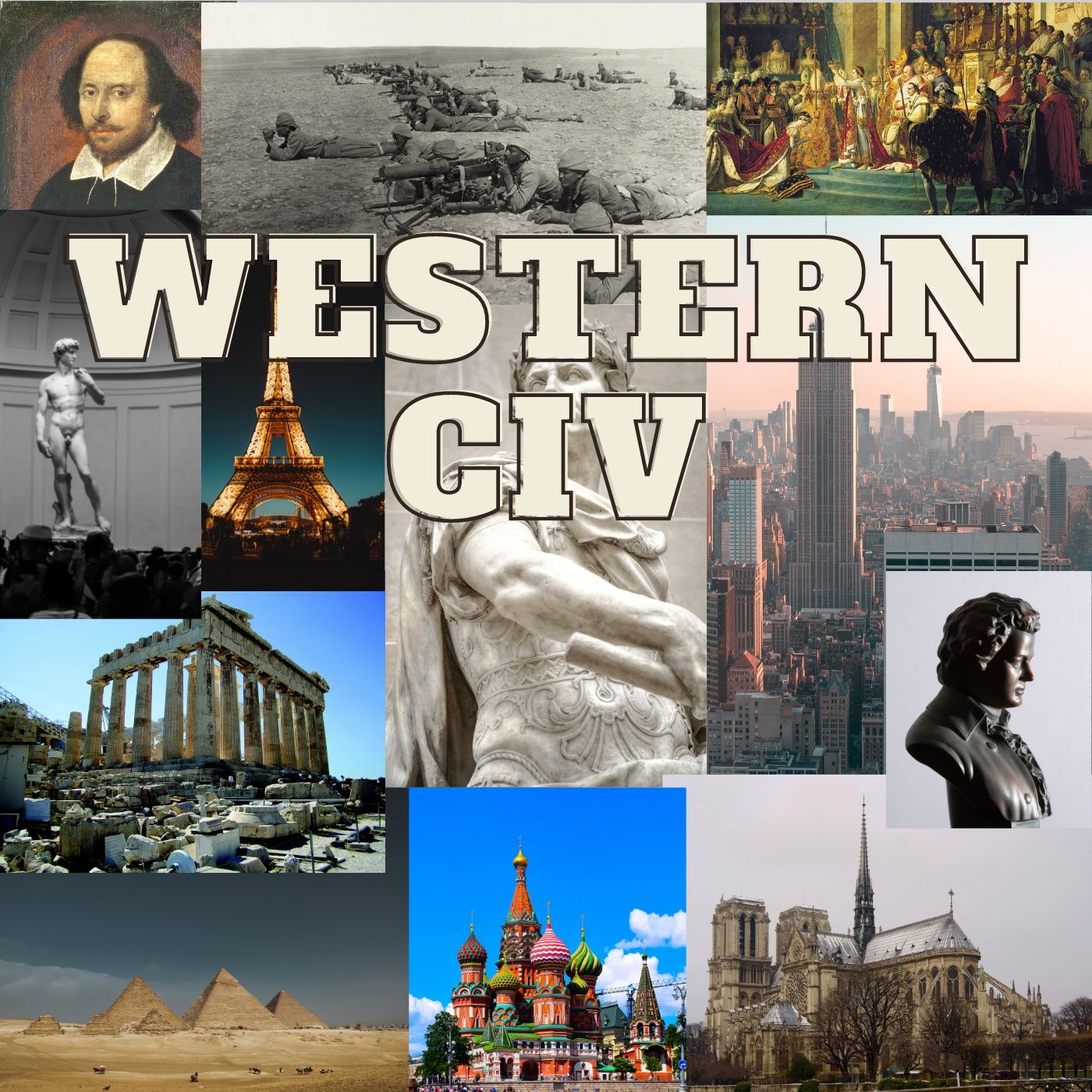

Western Civ
Adam Walsh
A fast-moving history of the western world from the ancient world to the present day. Examine how the emergence of the western world as a global dominant power was not something that should ever have been taken for granted. This podcast traces the development of western civilization starting in the ancient Near East, through Greece and Rome, past the collapse of the Western Roman Empire into the Dark Ages, and then follows European and, ultimately, American history as the western world moved into a dominant world position.
Episodes
Mentioned books

Oct 6, 2025 • 39min
The History of the Peloponnesian War
Thucydides called his work a “possession for all time,” and his History of the Peloponnesian War has been essential reading for generals and politicians for centuries. Robin Waterfield’s translation of Thucydides’s sweeping narrative vividly depicts the events of the war between Athens and Sparta that began in 431 BCE and would continue until 404, a conflict that embroiled not only mainland Greece but Greek states from the eastern Mediterranean and as far west as Italy and Sicily. The only extant contemporary narrative of this conflict, Thucydides’s History brims with military, moral, and political reflections, offering critical commentary on challenges that still dominate our world today, from the strife of civil war to the devastation of widespread plague to the nature of political power. Thucydides died before completing the account—it ends in 410—but his legacy is timeless. One of the great masterpieces of classical Greece, The History of the Peloponnesian War offers an incisive and timely window into the conflicts of the past. BUY THE BOOK

Oct 3, 2025 • 15min
Episode 485: The American Revolution Part Three
Washington's victory at Yorktown effectively ends the war and costs Great Britain her colonies.Western Civ 2.0 Free Trial

Oct 1, 2025 • 21min
Episode 484: The American Revolution Part Two
The Battle of Saratoga turns the tide while Washington builds resilience in Valley Forge.Western Civ 2.0 Free Trial

Sep 26, 2025 • 30min
Episode 483: The American Revolution Part One
The American colonists vote for independence and Washington crosses the Delaware. Western Civ 2.0 Free Trial

Sep 23, 2025 • 48min
1942: When World War II Engulfed the Globe
By the end of the Second World War, more than seventy million people across the globe had been killed, most of them civilians. Cities from Warsaw to Tokyo lay in ruins, and fully half of the world’s two billion people had been mobilized, enslaved, or displaced.In 1942, historian Peter Fritzsche offers a gripping, ground-level portrait of the decisive year when World War II escalated to global catastrophe. With the United States joining the fight following Japan’s attack on Pearl Harbor, all the world’s great powers were at war. The debris of ships sunk by Nazi submarines littered US beaches, Germans marauded in North Africa, and the Japanese swept through the Pacific. Military battles from Singapore to Stalingrad riveted the world. But so, too, did dramas on the war’s home fronts: battles against colonial overlords, assaults on internal “enemies,” massive labor migrations, endless columns of refugees.With an eye for detail and an eye on the big story, Fritzsche takes us from shipyards on San Francisco Bay to townships in Johannesburg to street corners in Calcutta to reveal the moral and existential drama of a people’s war filled with promise and terror.BUY THE BOOK

Sep 19, 2025 • 25min
Episode 482: The Boiling Pot
In the span of one decade, Great Britain went from winning a war against France to fighting a war with its own colonies. This is that story.Western Civ 2.0 Free Trial

Sep 17, 2025 • 12min
Episode 481: The Partition of Poland
Over the course of roughly three decades, Lithuania-Poland ceased to exist. Western Civ 2.0 Free Trial

Sep 12, 2025 • 33min
Episode 480: The Seven Years War
AKA the French and Indian War for those of you who ever took US History...Western Civ 2.0 Free Trial

Sep 5, 2025 • 18min
Episode 479: Storm on the Horizon
A number of factors led into the Seven Years War. Here I break them down.Western Civ 2.0

11 snips
Sep 1, 2025 • 24min
Episode 478: Pirates!
Explore the dramatic Russo-Turkish War of 1710, driven by Tsar Peter the Great's ambitions for the Black Sea. Discover the intriguing diplomatic maneuvers between Peter and Charles XII amid Ottoman complexities. Dive into the founding of New Orleans, highlighting the city's unique identity shaped by colonial rule and cultural blending. Lastly, unravel the Golden Age of Caribbean piracy, where desperation spurred lawlessness, featuring notorious figures like Blackbeard, and witness the rise and eventual decline of piracy amid evolving colonial influences.


